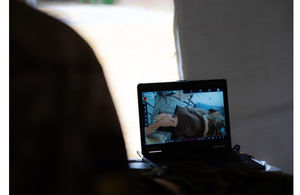Switzerland and UK to negotiate a bilateral financial services agreement
The joint statement signed today by Rishi Sunak and Ueli Maurer the Head of Switzerland’s Federal Department of Finance, is the most ambitious commitment made by two countries to develop an international agreement on financial services. It signals the UK’s ambition to continue to cement its role as an international financial centre once it has left the EU, with the highest standards of regulation and an openness to the whole world.
The commitment outlines the UK and Switzerland’s shared ambition to negotiate an outcomes-based mutual recognition agreement on financial services that will enhance cooperation and trust between the two countries. This will reduce costs and barriers for UK firms accessing the Swiss market, and vice versa, and cover a wide range of sectors.
The Chancellor of the Exchequer, Rishi Sunak, said:
The UK’s financial sector is integral to the success of the British economy, creating jobs, driving regional growth, and contributing taxes that pay for essential public services.
Leaving the EU means we are now free to chart our own course, driven by our clear values as a financial centre: a safe and transparent place to do business, innovative markets that drive change for the better, and openness to the whole world.
Today’s agreement is about our vision of the world economy as open, global and free – a vision shared by Switzerland, with our long history of trade and finance.
Miles Celic, Chief Executive Officer, TheCityUK, said:
The UK and Switzerland are natural partners for financial and related professional services trade. As the first and third largest net exporters of these services globally, both countries are committed to developing high-quality global standards and maintaining open and efficient markets. These discussions present an opportunity to set a new gold standard for global services trade between two sovereign nations.
In a further sign of the two countries’ integrated equity markets, the Chancellor also announced that the Treasury has completed its equivalence assessment of Switzerland in relation to Swiss stock markets and found them to be equivalent. This will benefit investors in both countries.
Today’s commitment is a concrete demonstration of the Chancellor’s strategy to cement London’s role as an international financial centre and ensure the UK remains a global example of excellence in financial services regulation. It sits within HMT’s broader international strategy for financial services, which includes pursuing ambitious financial services trade policy in the UK’s programme of Free Trade Agreements, as well as strengthening ties with fast-growing markets in the East.
Switzerland is the ideal partner for this strategy, due to the strong commitment and enthusiasm they share with the UK for open, stable and competitive financial markets, underpinned by quality regulation. Details of the agreement will be discussed over the coming months ahead of the UK/Switzerland Economic & Financial dialogue in September.
